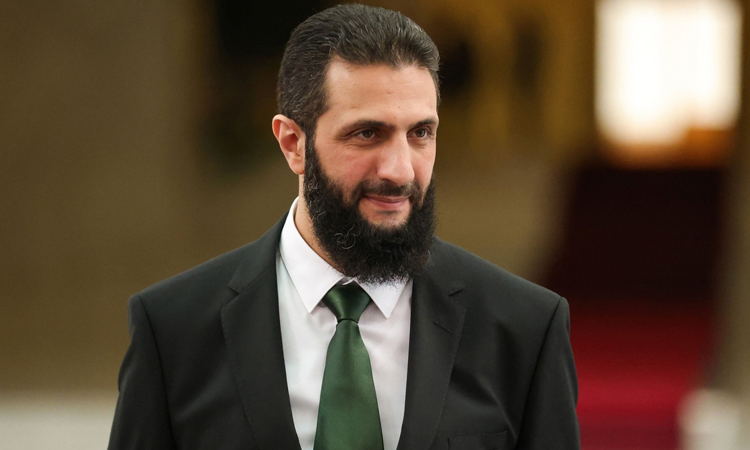News Flash
News Flash

DAMASCUS, March 9, 2025 (BSS/AFP) - Syrian President Ahmed al-Sharaa called
for national unity and peace on Sunday, after more than 1,000 people were
reportedly killed in coastal Syria in the worst clashes since the overthrow
of Bashar al-Assad.
The violence erupted on Thursday between the new security forces and
loyalists of the former government along the Mediterranean coast in the
heartland of the Alawite minority to which Assad belonged.
It has since escalated into the largest challenge to the new government's
forces since Sharaa's Islamist-led coalition toppled Assad in December.
"We must preserve national unity (and) civil peace as much as possible and,
God willing, we will be able to live together in this country," Sharaa said
from a mosque in Damascus
The Syrian Observatory for Human Rights war monitor has reported that 745
Alawite civilians were killed in Latakia and Tartus provinces.
The Britain-based Observatory said they were killed in "executions" carried
out by security personnel or pro-government fighters, accompanied by the
"looting of homes and properties".
The fighting has also killed 125 members of the security forces and 148 pro-
Assad fighters, according to the Observatory, taking the overall death toll
to 1,018.
The official SANA news agency reported on Saturday that security forces had
deployed to Latakia, as well as Jableh and Baniyas further south, to restore
order.
Baniyas resident Samir Haidar, 67, told AFP two of his brothers and his niece
were killed by "armed groups" that entered people's homes, adding that there
were "foreigners among them".
Though himself an Alawite, Haidar was part of the leftist opposition to the
Assads and was imprisoned for more than a decade under their rule.
Defence ministry spokesman Hassan Abdul Ghani said the security forces had
"reimposed control" over areas that had seen attacks by Assad loyalists.
"It is strictly forbidden to approach any home or attack anyone inside their
homes," he added in a video posted by SANA.
- Roads blocked -
Education Minister Nazir al-Qadri announced that schools would remain shut on
Sunday and Monday in both Latakia and Tartus provinces due to the "unstable
security conditions".
SANA reported a power outage throughout Latakia province due to attacks on
the grid by Assad loyalists.
The killings followed clashes sparked by the arrest of a wanted suspect in a
predominantly Alawite village, the Observatory reported.
The monitor said there had been a "relative return to calm" in the region on
Saturday, as the security forces deployed reinforcements.
A defence ministry source told SANA that troops had blocked roads leading to
the coast to prevent "violations", without specifying who was committing
them.
Latakia province security director Mustafa Kneifati told the news agency: "We
will not allow for sedition or the targeting of any component of the Syrian
people."
Sharaa's Islamist group Hayat Tahrir al-Sham (HTS), which led the lightning
offensive that toppled Assad in December, has its roots in the Syrian branch
of Al-Qaeda and remains proscribed as a terrorist organisation by many
governments including the United States.
Since the rebel victory, it has moderated its rhetoric and vowed to protect
Syria's religious and ethnic minorities.
- Fear of reprisals -
The Alawite heartland has been gripped by fear of reprisals for the Assad
family's brutal rule, which included widespread torture and disappearances.
Social media users have shared posts documenting the killing of Alawite
friends and relatives.
The Observatory, which relies on a network of sources in Syria, has reported
multiple "massacres" in recent days, with women and children among the dead.
The Observatory and activists released footage showing dozens of bodies in
civilian clothing piled outside a house, with blood stains nearby and women
wailing.
Other videos appeared to show men in military garb shooting people at close
range.
AFP could not independently verify the images or accounts.
The leaders of Syria's three main Christian churches as well as the spiritual
leader of Syria's Druze minority issued statements calling for an end to the
violence.
Aron Lund of the Century International think tank said the violence was "a
bad omen".
The new government lacks the tools, incentives and local support base to
engage with disgruntled Alawites, he said.
"All they have is repressive power, and a lot of that... is made up of
jihadist zealots who think Alawites are enemies of God."